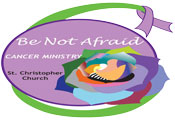Overview
People with cancer are often encouraged by health care professionals to seek support from groups of people who have direct or indirect experiences with the same type of cancer. People who take part in the support groups believe that they can live healthier and happier lives if they spend time relating to others. They believe that when relatives and friends lend support, it is easier for people to deal with their health and social problems. Some claim that the bonds formed between members of support groups help them feel stronger. They further claim that sharing feelings and experiences within support groups can reduce stress, fear, and anxiety and help to promote healing. Evidence suggests that support groups can improve quality of life for people with cancer. Available scientific evidence though does not support claims that support groups can actually extend survival time of people with cancer.
In the late 1970s, a type of therapeutic group meetings called an encounter group became popular, and group-intervention studies began appearing in a variety of science journals. An influential study by Dr. David Spiegel in 1989 reported that group therapy helped women with breast cancer to cope and live longer. Today, there are many hospital-based, independent and national networks of support groups for people with various types of cancer and other diseases, as well as for their families.
One clinical trial found that support groups helped in reducing tension, anxiety, fatigue, and confusion.
In a Nutshell:
Randomized clinical trials have shown inconsistent effects on survival, but most have shown improved quality of life in support group participants. Although more research is needed to determine what types of groups are most effective with what type of people, support groups may be useful as a complimentary therapy for people with cancer and other diseases.
Information
Any questions? Feel free to contact us or drop by our place should you need more information!
Contact





